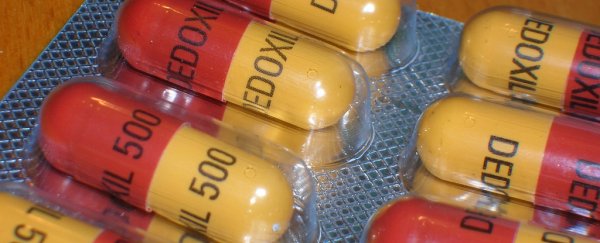A father was amazed when his young son's autism dramatically improved while taking an antibiotic for a throat infection.
American John Rodakis then began a quest to understand why this happened. What he found has now been published in the scientific journal Microbial Ecology in Health and Disease.
Rodakis, who is a medical venture capitalist with a background in molecular biology and has a Harvard MBA, began to examine the medical literature.
He found a study from 1999 conducted at Chicago Rush Children's hospital documented a similar phenomenon in autistic children.
After speaking with other parents and clinicians, he discovered that improvements on antibiotics such the one his son experienced were frequently observed but not well studied.
"I was determined to understand what was happening in the hope of helping both my son and millions of other children with autism," he said.
The quest led him to autism researcher Richard Frye, head of the Autism Research Program at Arkansas Children's Hospital Research Institute. They began a collaboration.
"Careful parental observations can be crucial," said Dr Frye. "In science we take these observations, put them through the scientific method, and see what we find. This is what can lead to ground breaking scientific discoveries and breakthroughs in the field."
Fifteen years ago, another autism parent, Ellen Bolte, had what at the time was a far-fetched hypothesis: that gut bacteria played a role in some cases of autism.
Her efforts resulted in the small 1999 clinical trial conducted at Chicago Rush Children's hospital that Rodakis found while doing his research.
Today, that hypothesis has grown into a large body of evidence demonstrating a link between the microbiome and autism, also called the "gut-brain" connection.
Other research has show that children with autism had less bacterial diversity in their guts.
The latest journal article by Rodakis outlines the personal story of how his child's autism symptoms improved while taking a common antibiotic and then goes on to summarise recent research into possible biological mechanisms at work.
Rodakis does not suggest that antibiotics are a treatment for autism, but rather may be useful as a research tool.
"Current research is demonstrating that gut bacteria play previously undiscovered roles in health and disease throughout medicine," Rodakis said. "The evidence is very strong that they also play a role in autism. It's my hope that by studying these antibiotic-responding children, we can learn more about the core biology of autism."
Original article from Business Insider.
More from Business Insider:
